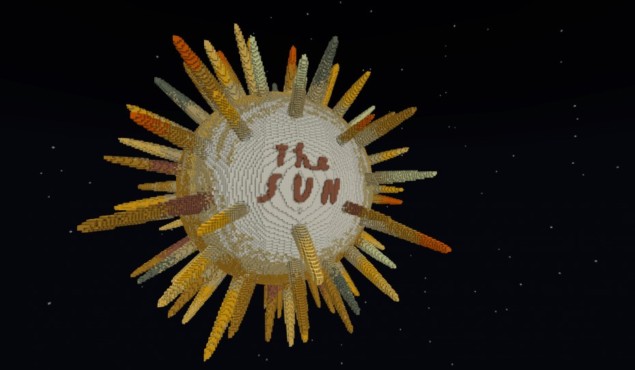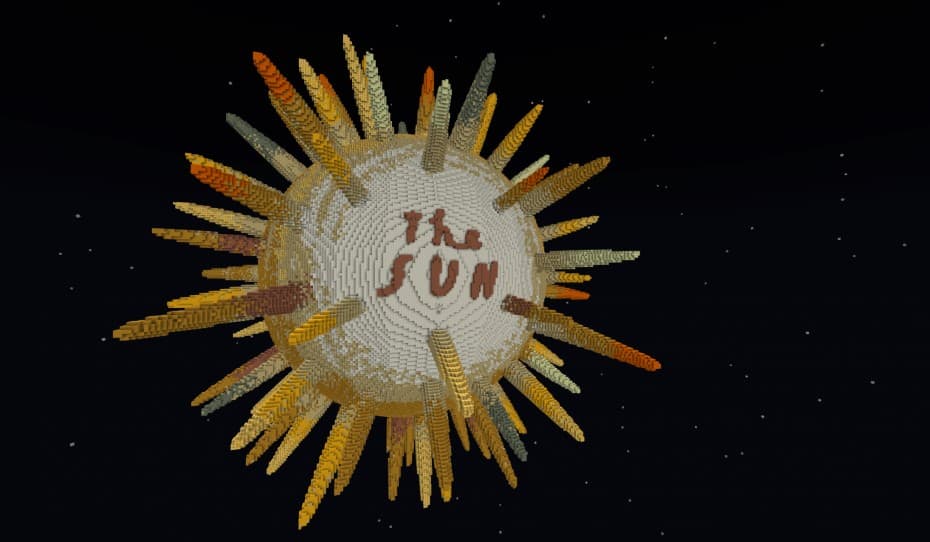
While Minecraft is the best-selling video game in history and might have kids glued to their screens more than their parents would like, it does come with some educational benefits. One example is a new cosmic adventure called Our Place in Space. Based on the work of artist Oliver Jeffers and Queen’s University Belfast astronomer Stephen Smartt, the free download allows Minecraft gamers to travel through the solar system and throughout history.
As well as learning about the planets, users will also uncover and learn about issues such as war, famine, slavery and even fake news. The game, which has been downloaded over a million times since it was launched in April, was created as part of the Our Place in Space installation – a recreation of the solar system as a 10 km sculpture trail with an accompanying augmented reality app.
“It can be difficult to visualise and appreciate the scale of the universe,” says Smartt, who features as a Minecraft character in the game. “Our own solar system is only a tiny part of our galaxy, yet its dimensions are colossal.”
Useful potions
In a paper that you would usually expect to see published on 1 April, health scientists Christoph Kurz at the Helmholtz Zentrum München and Adriana König at the Ludwig Maximilian University of Munich investigated whether machine learning could generate useful potion recipes for Hogwarts School of Witchcraft and Wizardry (arXiv: 2307.00036).
They were inspired to do so given the recent interest in the pharmaceutical industry in using artificial intelligence, or AI, in drug discovery. The pair collected 72 potion recipes from the Harry Potter wiki page and then generated 10,000 new potion recipes by randomly picking between three to eight ingredients such as mistletoe berries and, er, unicorn horns.
They then used a neural network to predict the category of each potion, finding that half the recipes were psychoanaleptics – drugs that restore mental health – followed by 15% being dermatologicals – or treatments for the skin. “Two muggles with (presumably) no magical abilities performed the study,” the authors write. “Thus it is difficult to assess the validity and classification quality of the generated recipes.”
